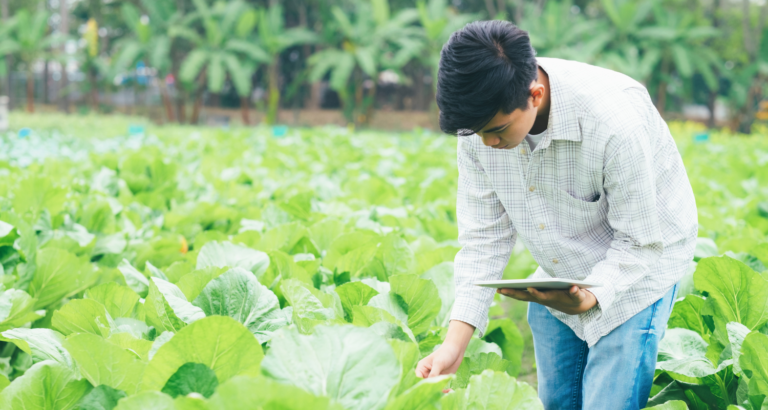Introduction
Potassium Humate 98 is a highly concentrated form of potassium humate, a natural compound derived from organic materials such as leonardite or lignite. It is widely used in agriculture to improve soil fertility, enhance plant growth, and increase crop yields. In this article, we will explore the benefits of Potassium Humate 98 in agriculture and provide guidelines on its application for optimal results.
Understanding Potassium Humate 98
It is a soluble powder that contains a high concentration of humic acid, fulvic acid, and potassium. Humic acids are organic compounds that improve soil structure and nutrient availability, while fulvic acids enhance nutrient uptake by plants. The presence of potassium ensures a balanced nutrient supply for plants, promoting healthy growth and development.
Benefits of Potassium Humate 98 in Agriculture
Improved Soil Structure
The application of Potassium Humate 98 improves soil structure. It enhances the soil’s water-holding capacity, promotes better drainage, and reduces soil compaction. Improved soil structure allows for better root penetration, aeration, and nutrient movement, creating an ideal environment for plant growth.
Enhanced Nutrient Uptake
It improves nutrient uptake by plants. The humic and fulvic acids in the product act as chelating agents, binding essential nutrients in the soil and making them more available for plant roots to absorb. This results in increased nutrient uptake efficiency and reduces the risk of nutrient deficiencies.
Increased Crop Yield
Using it in agriculture can lead to increased crop yields. The improved nutrient availability, enhanced soil structure, and better root development contribute to healthier plants with higher resistance to environmental stressors. As a result, crops can achieve their maximum yield potential.
Enhanced Plant Growth an Development
It stimulates plant growth and development. It promotes root elongation, leading to a stronger root system that can absorb water and nutrients more efficiently. Additionally, it enhances cell division and increases chlorophyll production, which contributes to better photosynthesis and overall plant vigor.
How to Apply Potassium Humate 98 in Agriculture
Soil Application
For soil application, it can be applied by broadcasting or through localized placement. The recommended dosage varies depending on the soil type and crop requirements. It is advisable to mix the powder with water before application to ensure uniform distribution. Incorporate the product into the soil before sowing or transplanting the crops.
Seed Treatment
It can be used as a seed treatment to enhance germination and seedling vigor. Mix the appropriate amount of the powder with water and coat the seeds thoroughly. Allow the treated seeds to dry before sowing them. This application method helps establish strong and healthy seedlings from the early stages.
Foliar Spray
Foliar spraying with it is another effective application method. Dilute the powder in water according to the recommended dosage and spray the solution onto the leaves of the plants. Make sure to adequately cover both the upper and lower surfaces of the leaves for complete application. Foliar spraying is particularly beneficial during critical growth stages or in nutrient-deficient conditions.
Drip Irrigation
It can be applied through drip irrigation systems. Dissolve the powder in water and inject the solution into the irrigation system. This method ensures the gradual and consistent supply of the product to the plants’ root zones, improving nutrient uptake and overall plant performance.
Precautions and Considerations
Proper Dosage and Application Timing
It is crucial to follow the recommended dosage guidelines provided by the manufacturer or agricultural experts. Applying excessive amounts of it may lead to nutrient imbalances or other negative effects. Additionally, consider the specific growth stages of the crops and time the application accordingly for optimal results.
Compatibility with Other Inputs
Before combining it with other agricultural inputs such as fertilizers or pesticides, check their compatibility. Some products may interact unfavorably or reduce the efficacy of each other. Conduct compatibility tests or consult with agricultural professionals to ensure the safe and effective use of multiple inputs.
Storage and Handling
Store it in a cool, dry place away from direct sunlight and moisture. Follow the handling instructions provided by the manufacturer to maintain the product’s quality and prevent contamination. Childrens and pets should be kept out of reach of Potassium Humate.
Conclusion
Potassium Humate 98 is a valuable tool for enhancing agriculture productivity. Its ability to improve nutrient uptake, soil structure, and crop yield makes it a beneficial addition to farming practices. By following the appropriate application methods and considering the recommended precautions, farmers can harness the potential of Potassium Humate 98 to optimize their agricultural outcomes. Bulk Agro Chem offers the best quality Potassium Humate in India which can be used in various applications as mentioned in this blog post.
FAQs (Frequently Asked Questions)
- Is Potassium Humate 98 safe for organic farming?
Yes, it is derived from organic materials and can be used in organic farming practices.
- Can Potassium Humate 98 be applied with chemical fertilizers?
Yes, it is compatible with most chemical fertilizers. However, it is advisable to conduct compatibility tests before combining them.
- What is the recommended dosage of Potassium Humate 98 for soil application?
The recommended dosage varies depending on the crop and soil conditions. Follow the instructions provided by the manufacturer or consult with agricultural experts for specific recommendations.
- Can Potassium Humate 98 be used on all types of crops?
Yes, it is suitable for a wide range of crops, including fruits, vegetables, grains, and ornamental plants.
- How frequently should Potassium Humate 98 be applied?
The frequency of application depends on the crop’s growth stage and specific requirements. Consult the product label or seek guidance from agricultural professionals for the recommended application intervals.




